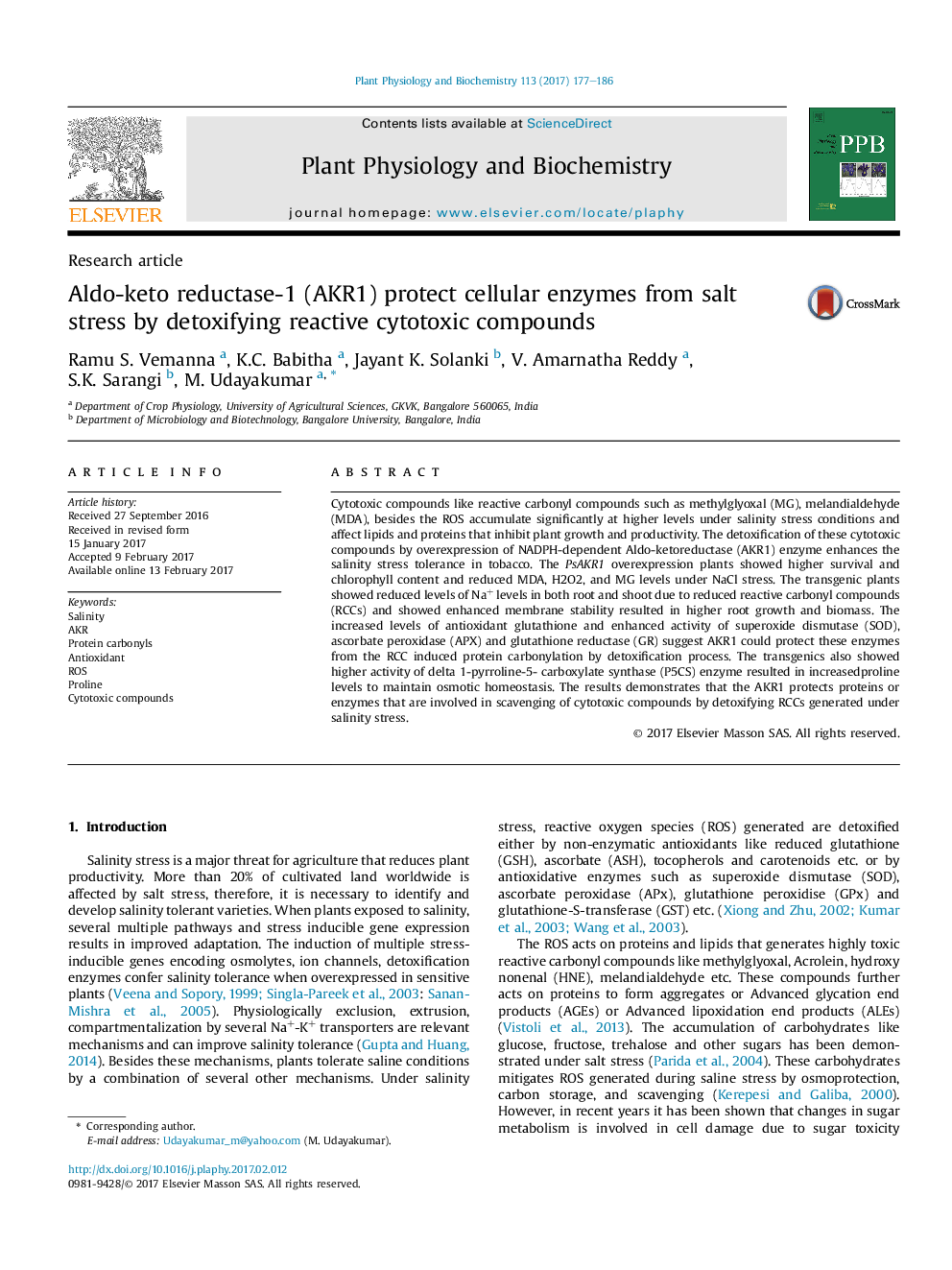| کد مقاله | کد نشریه | سال انتشار | مقاله انگلیسی | نسخه تمام متن |
|---|---|---|---|---|
| 5515608 | 1541908 | 2017 | 10 صفحه PDF | دانلود رایگان |

- Salinity stress induces reactive cytotoxic compounds that affect plant growth.
- Overexpression of Aldo-keto reductases detoxify RCCs and improve tolerance.
- The AKR1 protects scavenging enzymes from protein carbonylation.
- Protection of P5CS enzyme by AKR1 from carbonyl stress improve proline levels.
- AKR1 protect chlorophyll degradation by ROS and RCC under salinity stress.
Cytotoxic compounds like reactive carbonyl compounds such as methylglyoxal (MG), melandialdehyde (MDA), besides the ROS accumulate significantly at higher levels under salinity stress conditions and affect lipids and proteins that inhibit plant growth and productivity. The detoxification of these cytotoxic compounds by overexpression of NADPH-dependent Aldo-ketoreductase (AKR1) enzyme enhances the salinity stress tolerance in tobacco. The PsAKR1 overexpression plants showed higher survival and chlorophyll content and reduced MDA, H2O2, and MG levels under NaCl stress. The transgenic plants showed reduced levels of Na+ levels in both root and shoot due to reduced reactive carbonyl compounds (RCCs) and showed enhanced membrane stability resulted in higher root growth and biomass. The increased levels of antioxidant glutathione and enhanced activity of superoxide dismutase (SOD), ascorbate peroxidase (APX) and glutathione reductase (GR) suggest AKR1 could protect these enzymes from the RCC induced protein carbonylation by detoxification process. The transgenics also showed higher activity of delta 1-pyrroline-5- carboxylate synthase (P5CS) enzyme resulted in increasedproline levels to maintain osmotic homeostasis. The results demonstrates that the AKR1 protects proteins or enzymes that are involved in scavenging of cytotoxic compounds by detoxifying RCCs generated under salinity stress.
Journal: Plant Physiology and Biochemistry - Volume 113, April 2017, Pages 177-186